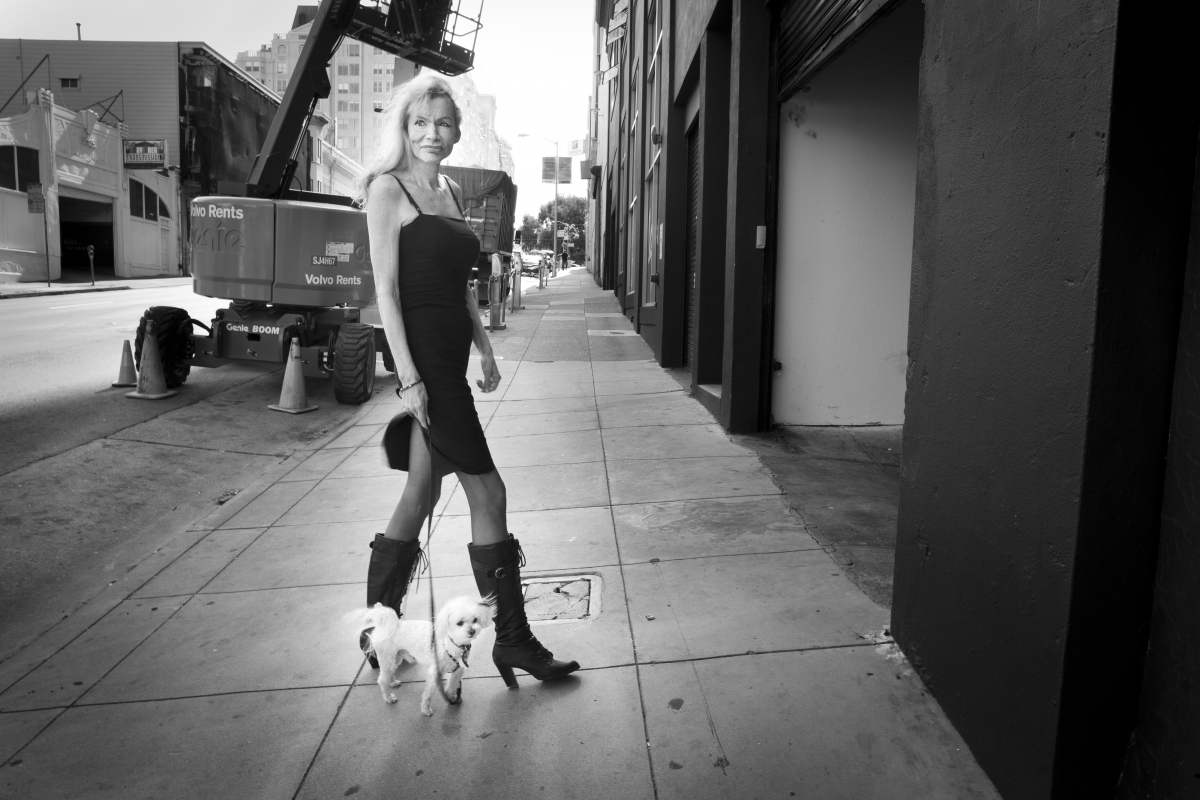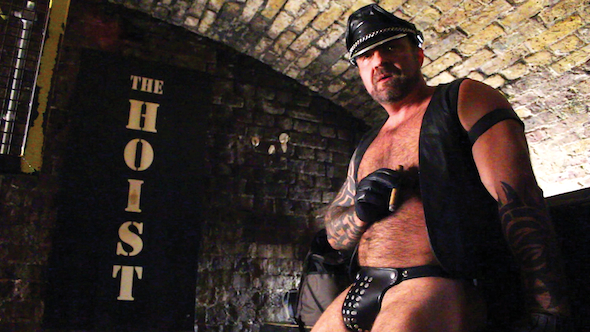
Within the past week, two former gay students of mine texted to relate their agony at not having boyfriends and the inability to see any in their futures. All the potential Romeos they meet are just interested in one-night stands or are on the down-low. No love on balconies.
"You both have just encountered the Walking, Raging, Testosterone-Filled Humanoids -- or Men. Run!!!!" I thought.
Of course, when I was their age, during the Sexual Revolution, copulation always seemed to come first and possible relationships occasionally built upon those chance encounters. Nowadays, the young LGBT crowd has the option of gay groups and courses on campus, the Gay Community Center, and, of course, NewFest at Lincoln Center, which annually brims over with documentaries and narratives showcasing the ins and outs of same-sex intimacies. What safer way is there to learn about life and meet a mate while purchasing popcorn? “Take that, Grindr.”
For instance, there’s William Oldroyd’s lovely three-minute short from Britain, "Best," which supplies a whole new meaning to best man. The film commences with two gents in tuxes engaging in oral sex. One orgasms before he heads off to his wedding ceremony with his fellator by his side. But before he departs, he whispers, "When my dad dies, I’ll end it." So wry and shrewd is this brief offering, you'll almost overlook how sad the groom's [and the unseen bride’s] dilemma is.
Another gift for Anglophiles is Charles Lum and veteran underground helmer Todd Verow's documentary, Age of Consent, the rather thorough history of the Hoist, a London leather bar. If you believe a sex act is a revolution in itself, you might just embrace this heartfelt chatter fest that seems to argue that this S&M club almost single-handedly brought about gay liberation in England by providing a friendly place for guys to fist each other. As a bonus, we actually get to see the club's 18-year-old sling dusted.
Astutely, aware of how some folks are docu-phobic and become listless at the sight of talking heads, the wise filmmakers edited in numerous staged acts of lasciviousness. At 4 minutes and 21 seconds, two bar patrons engage in oral sex. At 5 minutes and 9 seconds, a gentleman imbibes his own urine. At 6 minutes and 31 seconds, anal sex pops up. And so forth.

Intercutting between these physical dalliances, the owners of the club, its paying inhabitants, and its workers spout forth often well-meaning, only occasionally monotone chitchat. However, when the erudite gay activist Peter Tatchell is interviewed, the viewer does receive a truly vivid and detailed sense of the repression that Her Majesty's Homosexuals had to bear throughout the decades.
Tatchell is followed by Dr. Joseph Sonnabend, one of the earliest physicians to treat those coming down with AIDS in New York City and the co-author of the first safe sex guide for gay men. Sonnabend uses part of his interview time to state that noted AIDS activist Dr. Lawrence Mass called him a "mass murderer," and he then puts down activist Larry Kramer and the Gay Men's Health Crisis, sidestepping the issue of why his reputation was held in slight disrepute by many. The good doctor was considered an HIV/AIDS denialist. In fact, Poz magazine noted in a back issue: "Until the late '90s, Sonnabend was outspoken against the notion that HIV had been proved to cause the disease." One can't help but wonder whether his former long-held position had a trickle-down effect on South Africa's AIDS drug policy that led to the death of hundreds of thousands by denying them the proper drug treatments? Also, what does his diatribe have to do with the subject at hand?
On the plus side, Age of Consent does assiduously chronicle how this alternative scene has evolved since 1996, while also exploring the possible causes of these cowhide and boot-licking fetishes. One affable fellow swears that at age 4-1/2, after watching Dr. Who -- The Pyramid of Mars series, where robot mummies squashed folks between their chests, his sexual leanings were permanently shaped. For another, at age 10 or 11, it was his father’s motorbike jacket. Another just opines, "I just thinks guys look good in rubber."
And humor is not absent here. For instance, co-owner "Uncut" Kurt Striegler recalls how on the blackboard hanging in the john, someone had written: "Looking for 4 tops to tie me up in the woods." Underneath was chalked, "Very sorry. The Four Tops are booked. Will the Shirelles do?"
Less violent is Silas Howard's absorbing nine-minute "Sticks & Bones" (image top). You know a director has chosen the right subject to focus upon when you want to know more and see more. Here, Bambi Lake, an apparently "legendary and notorious San Francisco transgender performer," lets loose on her hustler boyfriends, her stripping for Marines, her days with the Cockettes and the Angels of Light, and her interactions with “Iggy and Bowie” and Billy Idol. Not all of her memories are documented, she notes, so you might just have to take her word for her escapades now and then. As for her golden age, it was in the Seventies. The following decades haven't always been charitable. "My life has been sad and lonely," Ms. Lake states without tears. She's not a crier. Now residing in a home shared with roaches and mice, she's still writing songs and performing as a chanteuse when she's not wobbling down Polk Street with a poodle in her arms. Inarguably, this gal deserves a full-length bio or narrative. If James Brown has one, why not Bambi?
Then there's Karim Ainouz's Futuro Beach, which has all of the elements necessary to make a memorably seductive classic: fine, attractive actors; solid direction; stunning cinematography; engaging action; plus sensual lovemaking. Yet the film doesn't hold together due to a splintered, dissatisfying dramatic arc plus a few overly long stereotypical moments such as our heroes lip-synching ad nauseam to a female singer when some character development would have been more appreciated.
Divided into three sections, Futuro Beach starts off on a Brazilian beach shore where two German bikers rush into the ocean to storm the waves. Only one survives, even though Donato (Wagner Moura), a lifeguard, tries to save the day. The survivor, Konrad (Clemens Schick), is distressed until he starts making love to Donato between searches for his dead pal's body. Act two takes place in a frigid Berlin. Our two heroes are in love, but will Donato give up the warm weather of his homeland for Germanic affection? Act three jumps years ahead, with Donato’s resentful younger brother showing up. We learn out of nowhere that our Brazilian hero had never written to his family that he was not returning home. For his now-deceased mother, he had just disappeared off the face of the earth. Donato's out-of-character behavior is never explained, and what could have been an aesthetic Valentine to a grand besottedness eventually dissolves into a spiceless churrasco.
And that, boys, is what you need to know about love.
